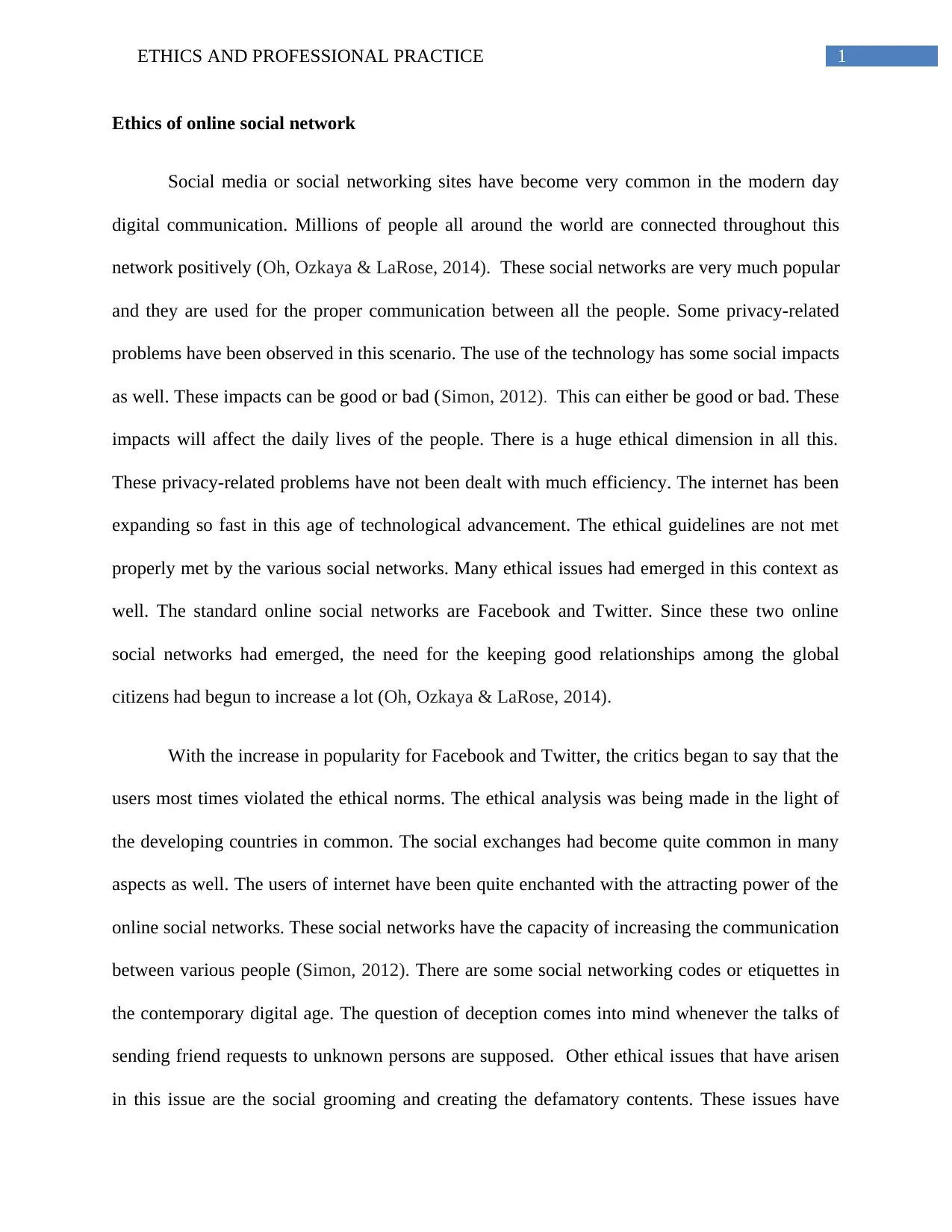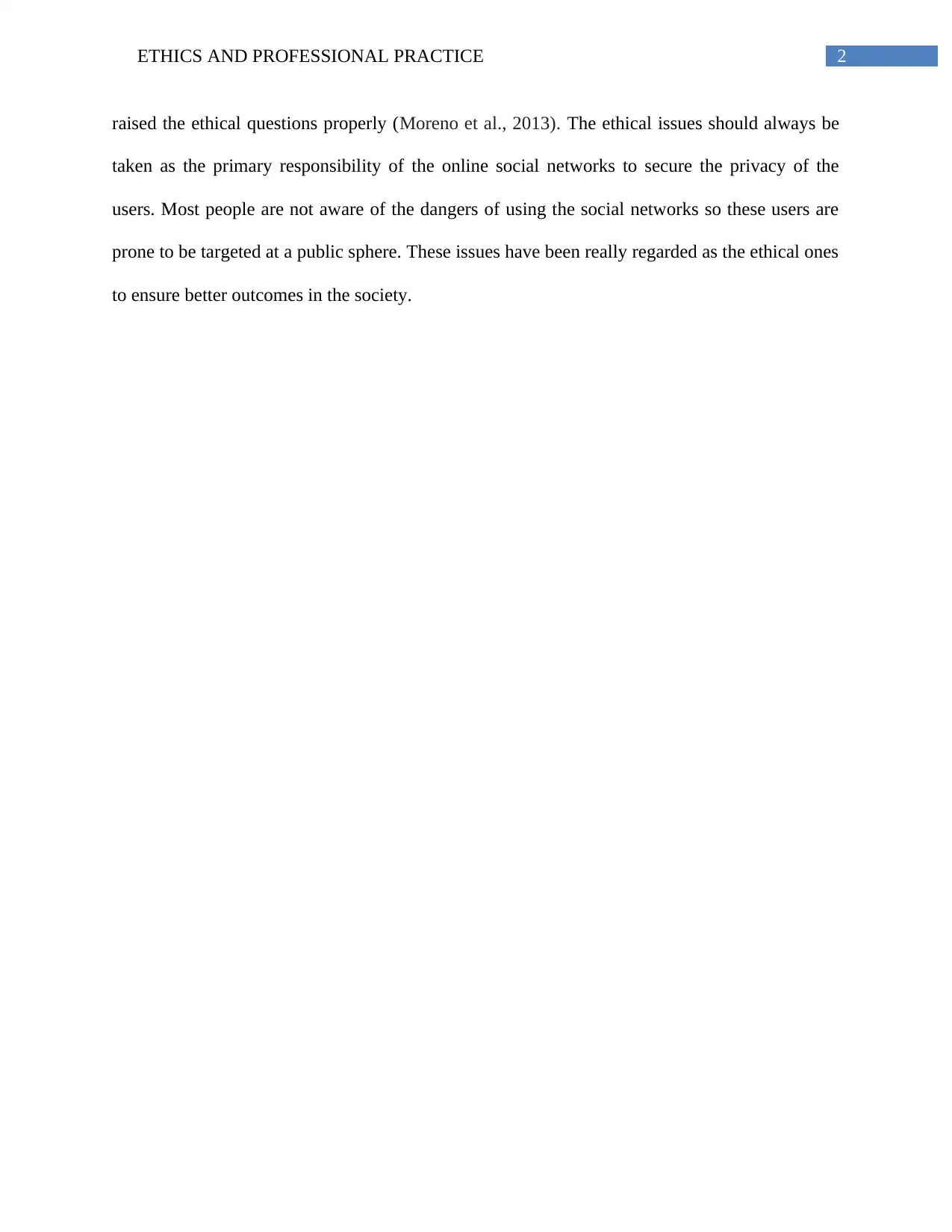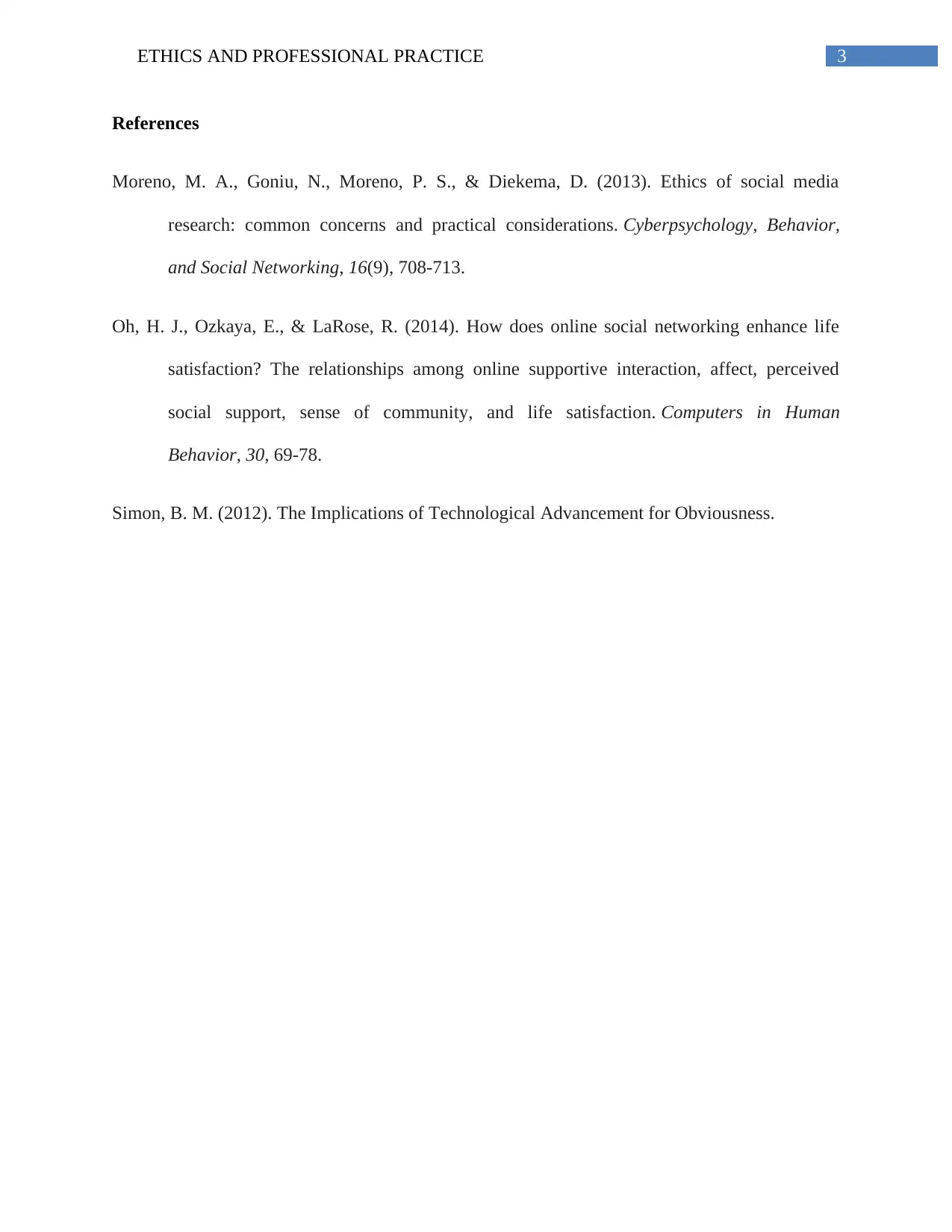Ethical Considerations of Social Media in Professional Practice
VerifiedAdded on 2020/05/16
|4
|601
|114
Report
AI Summary
This report delves into the ethical dimensions of social media, focusing on its impact on professional practice. It begins by highlighting the prevalence of social networking and its influence on global communication, while also addressing the privacy concerns and ethical challenges associated with this technology. The report emphasizes the importance of ethical guidelines in navigating the online landscape, particularly in light of the rapid advancements in technology. It explores the ethical issues that arise from social networking, such as deceptive practices and the creation of defamatory content, and stresses the responsibility of social networks to protect user privacy. The report references key studies to support its analysis and underscores the need for a critical examination of social media's ethical implications to ensure responsible and beneficial use.
1 out of 4











![[object Object]](/_next/static/media/star-bottom.7253800d.svg)